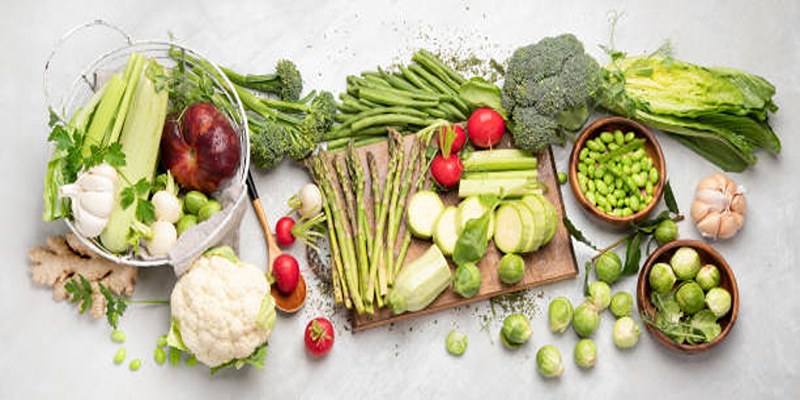Outdoor exercise is a powerful way to improve both physical and mental health. Being active outside not only helps strengthen your body but also uplifts your mood and reduces stress. The fresh air, natural sunlight, and changing scenery contribute to a more enjoyable workout experience compared to indoor routines.
Whether it's walking, running, cycling, or any other activity, exercising outdoors encourages consistency and overall wellness. If you want to refreshingly boost your fitness, taking your workouts outside can make all the difference. In this article, we explore the top 8 health benefits of outdoor exercise.
Boosts Mental Health Naturally:
Spending time outdoors can significantly improve mental well-being. Studies have shown that people who engage in physical activity outside, especially in green spaces, experience lower levels of stress, anxiety, and depression. Exposure to sunlight increases the production of serotonin, a hormone that helps stabilize mood and promotes feelings of happiness and calmness.
Outdoor exercise also encourages mindfulness. Whether you're walking a nature trail or doing yoga in the park, your brain gets a chance to slow down, reset, and enjoy the present moment, leading to better mental clarity and emotional stability.
Enhances Vitamin D Absorption:
One major perk of outdoor workouts is exposure to natural sunlight, which boosts vitamin D production in your body. Vitamin D plays a critical role in strengthening bones, supporting the immune system, and regulating mood. Just 15–30 minutes of outdoor activity during daylight hours can help maintain optimal levels of vitamin D.
Low vitamin D has been linked to fatigue, depression, and even impaired immunity. By incorporating outdoor exercise into your daily routine, you're naturally enhancing your body's defenses while lifting your spirits.
Supports a Stronger Immune System:
Outdoor exercise has powerful immune-boosting effects. Fresh air, sunlight, and movement work together to reduce inflammation, increase white blood cell production, and promote better sleep—all of which help your body fight illness more effectively.
Green environments also expose you to low levels of environmental microbes, which may help "train" your immune system to respond more effectively to future threats. Over time, this can lead to fewer colds, improved gut health, and stronger overall immunity.
Promotes Better Sleep:
Exercise alone is known to improve sleep quality, but outdoor exercise does it even better. Exposure to natural light helps regulate your circadian rhythm, making it easier to fall asleep and stay asleep.
Morning or late afternoon workouts are especially effective in aligning your body's internal clock. Plus, the physical exertion and mental relaxation that come from outdoor activity help reduce restlessness and nighttime anxiety, contributing to deeper, more restorative sleep.

Improves Cardiovascular Health:
Cardiovascular health benefits greatly from regular outdoor activity. Whether it's hiking, running, cycling, or brisk walking, outdoor cardio workouts strengthen the heart, lower blood pressure, and improve circulation.
The variability in outdoor terrain, such as hills, uneven ground, or wind resistance, adds natural intensity to your workouts, increasing endurance and calorie burn. Over time, this can lead to a reduced risk of heart disease, stroke, and high cholesterol.

Encourages Consistency and Motivation:
One of the biggest challenges in fitness is maintaining consistency. Outdoor workouts tend to be more enjoyable and less monotonous than indoor routines, making it easier to stay consistent with them.
Nature's scenery changes with every season, trail, and sunset. This variety stimulates your brain and keeps exercise interesting. You're also more likely to stay motivated when your workout feels like an adventure rather than a chore.
Boosts Cognitive Function:
Outdoor exercise doesn't just benefit your body—it sharpens your mind. Physical activity increases blood flow to the brain, improving memory, concentration, and mental processing speed.
Studies show that walking or exercising in natural environments enhances creative thinking and problem-solving skills more than doing the same activities indoors. Even a short 20-minute walk outdoors can leave you feeling more focused and mentally refreshed.
Strengthens Social Connections:
Outdoor exercise often presents opportunities for social interaction, whether it's joining a walking group, attending a park boot camp, or simply meeting new people on a trail. Exercising with others can boost motivation, improve mood, and foster a sense of belonging. These social bonds play a crucial role in mental well-being and can even enhance long-term commitment to a fitness routine. Plus, sharing outdoor experiences with friends or family adds an enjoyable layer of accountability and connection to your workouts.
Practical Outdoor Exercise Ideas:
If you're ready to step outside and get active, here are some simple yet effective outdoor exercises to try:
- Brisk Walking or Hiking: A fast-paced walk around your neighborhood or local park is perfect for beginners. For a more intense experience, try hiking trails that offer varied terrain to boost your heart rate and build leg strength.
- Cycling: Riding a bike on bike paths or quiet roads is a low-impact, joint-friendly way to burn calories, improve cardiovascular health, and enjoy the scenery. It's also easy to adjust the intensity to your fitness level.
- Park Workouts: Utilize public spaces like benches and stairs for exercises like squats, lunges, push-ups, or step-ups. Bodyweight exercises outdoors can be just as effective as a gym routine, with no equipment needed.
- Outdoor Yoga: Yoga in nature promotes relaxation and flexibility. Practice solo on the grass or join a local group session for added motivation and peaceful surroundings.
- Recreational Sports: Playing soccer, basketball, tennis, or frisbee with friends turns exercise into play. It boosts endurance, coordination, and mood while fostering social connections.
These ideas are accessible, flexible, and fun, helping you stay active consistently without feeling limited or bored indoors.
Conclusion
Outdoor exercise offers numerous health benefits that extend far beyond physical appearance. From improving cardiovascular fitness and mental clarity to boosting your immune system and enhancing sleep quality, spending time in nature while active can significantly transform your overall well-being.
The natural environment adds variety and joy to your routine, increasing your motivation and making fitness feel less like a chore and more like a lifestyle. You don't need expensive equipment or a gym membership to experience these benefits—step outside and move your body. The fresh air and sunlight will recharge you, whether it's a short walk or an hour-long hike. Start today, embrace outdoor movement, and feel your health improve from the inside out.












